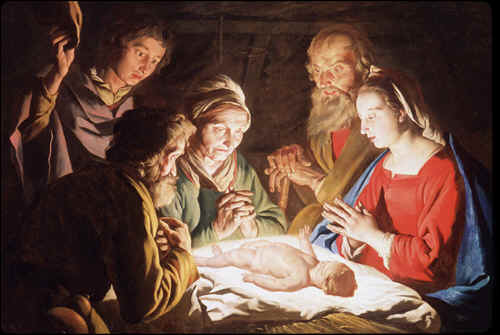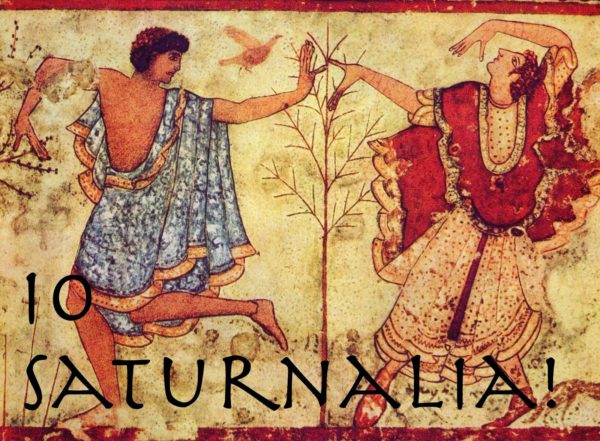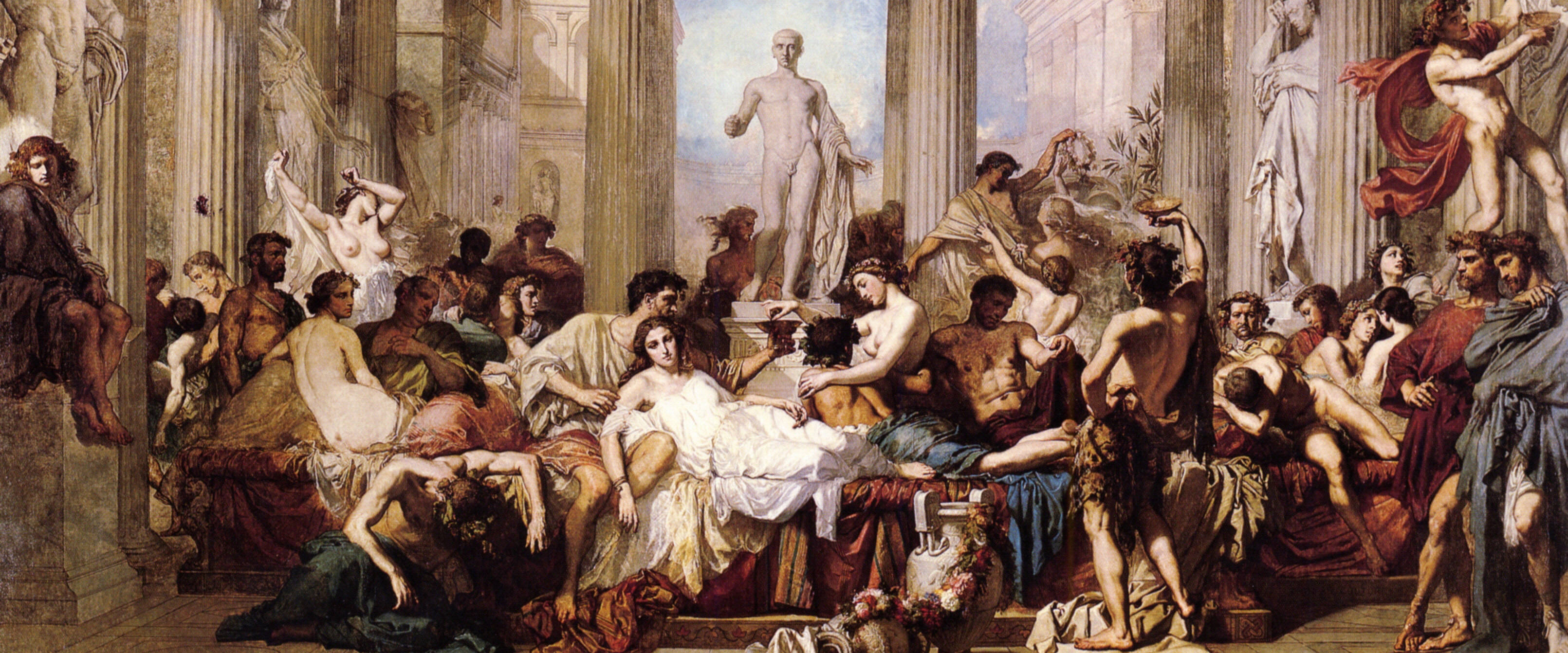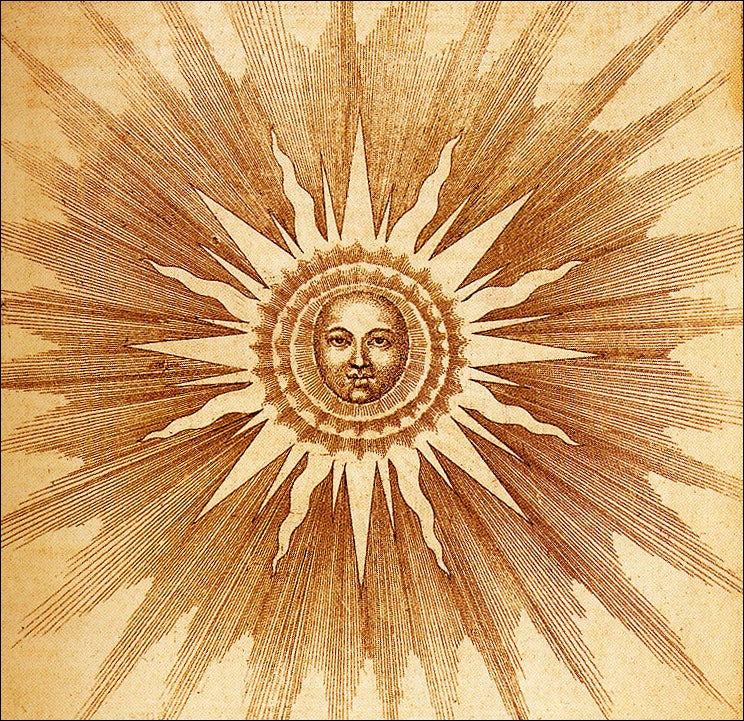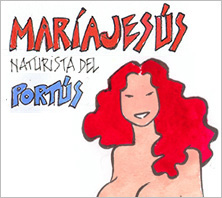La navidad es una de las celebraciones más importantes en todo el mundo. Es un hito importante para nosotros, el final de un año, tiempo de regalos, festejos, reuniones familiares y –para los cristianos practicantes- una emotiva fiesta religiosa.
Aunque la Navidad es actualmente época de regalos, de celebraciones y reuniones familiares, lo cierto es que su origen responde en realidad a otros factores históricos que involucran al poderoso Imperio Romano, a ritos paganos y poco tienen que ver con el hecho histórico que conmemoran: el nacimiento del niño Jesús.
Todos sabemos que el 25 de diciembre se conmemora el nacimiento de Jesús de Nazaret, pero la verdad es que se desconoce la fecha exacta de este hecho histórico. El análisis de ciertos fragmentos de los evangelios, así como de otros documentos de aquella época, han permitido a los historiadores realizar diferentes hipótesis sobre el nacimiento de Jesucristo. Algunos hablan de abril o mayo, mientras que otros concluyen que fue en Septiembre u Octubre.
EL ORIGEN PAGANO DE LA NAVIDAD
Aunque normalmente asociamos el origen de la Navidad a los mitos cristianos y al catolicismo, puesto que representa el nacimiento del niño Jesús; en realidad, esto es un error, al menos tal y como tenemos hoy en día aceptada la Navidad.
Precisamente, por esta duda entre la Navidad pagana y la Navidad cristiana, hubo un caso en 1990 en el que la junta escolar de Solon (Ohio) decidió eliminar todas la representaciones de la Navidad en cualquier ámbito escolar, puesto que era una práctica en contra del Estado laico de la ciudad, es decir, no respetaba la separación entre Iglesia y Estado. Igualmente, la junta perdió el caso porque las familias se opusieron a que sus hijos no pudiesen celebrar la Navidad en el colegio, defendiendo que la práctica de la Navidad era un acto secular y formaba parte de todas las culturas del mundo. A pesar de que la junta perdiera el caso, sí lograron eliminar las oraciones y la lectura de la biblia, asociadas a la celebración de la Navidad.
LA NAVIDAD Y SATURNO
El origen de la Navidad no es para nada cristiano. Como lees en el principio de este artículo, el origen de la Navidad es pagano. La primera vez que podemos oír hablar de las Navidades celebradas el 25 de diciembre (tal y como lo conocemos hoy) surgió casi dos siglos después del nacimiento de cristo por lo que, incluso después del nacimiento del niño Jesús, las Navidades se seguían celebrando en torno a la figura de Saturno que los romanos implantaron.
Los romanos celebraban la Saturnalia romana que no era más que un festival que representaba el solsticio de invierno y honraban al dios Saturno. Durante esta fiesta, los romanos se alborotaban y por ello, los pocos cristianos que existían en aquella época, se oponían a estas celebraciones tan descontroladas. De esta manera se dice que la Navidad surgió para sustituir la celebración de Saturno, rey del Sol, que en inglés es “sun”, por lo que se tomó como el nacimiento del hijo de Dios, que en inglés es “son”. Más tarde, cuando la religión cristiana se impuso en todo el Imperio Romano, el rey Justiniano declaró la Navidad como unas fiestas cívicas, aunque poco duró esta compostura, pues en la Edad Media las fiestas navideñas se convirtieron en días para beber y estar de juerga de la mañana a la noche.
De hecho, si miramos costumbres antiguas, puede parecer muy raro celebrar el nacimiento de alguien ya que en los primeros siglos de Iglesia Cristiana, se solía celebrar la muerte de las personas que eran importantes y no sus nacimientos.
También tenemos que observar la siguiente cita para darnos cuenta de que, en realidad, esta festividad no es aceptada en la Biblia.
Pues en vano me honran, enseñando como doctrinas, mandamientos de hombres” (Mat. 15:9). La Navidad no es un mandamiento de Dios — es una tradición de los hombres. Cristo continuó: “Bien invalidáis el mandamiento de Dios para guardar vuestra tradición. (Marcos 7:9)
La Saturnalia se celebraba cuando el sol estaba más bajo en el cielo y, así, los días se hacían más largos. Eso simbolizaba el crecimiento. Durante esta época se honraba a Saturno, dios del Sol y del fuego. También era relacionado con la agricultura, pues esta necesitaba el sol para poder sembrar y que las cosechas creciesen. El festival de invierno llamaba a este dios del Sol para que volviese y las cosechas siguiesen creciendo.
El planeta Saturno también toma el nombre de este Dios, pues sus anillos y el color rojo marcaban esta asociación.
En el resto de las civilizaciones y culturas, también existía este dios del fuego y del sol. En Egipto lo llamaban Vulcano, los griegos le llamaban Cronos, los babilonios Tamuz (o Nimrod cuando resucita en su hijo) y Moloc o Baal para los druidas. Para ellos, todos estos dioses eran Nimrod, considerado el padre de los dioses babilonios.
Saturno también era considerado un devorador de niños pues, al ser el padre de los dioses, debía tener un caracter intachable. Llevando el nombre de Cronos, cuenta la historia que devoraba a sus hijos según nacían.
Si te estás preguntando por qué consideraban necesario sacrificar a los niños para adorar a este dios, se debe simplemente a que creían al fuego como algo divino que limpiaba los pecados y defectos que se pasaban de manera de generación en generación, por lo que a los niños debían quemarlos para eliminar estas genéticas.
SANTA CLAUS
Aunque en la edad moderna nos referimos a Santa Claus por San Nicolás, en una edad anterior, Santa era el nombre del dios Nimrod en Asia menor. Si lo pensamos un poco, veremos que el centro de las Navidades, en todas sus etapas, siempre han sido protagonizadas por los niños. Durante los tiempos romanos, los regalos se daban a niños y pobres; y los druidas sacrificaban a los niños para el dios que adoraban en estas fechas. De esta misma manera, Nimrod o el Santa pasado, deboraba a los niños y, hoy en día les reparte regalos.
Igualmente, también debemos analizar la figura de San Nicolás, que proviene de un personaje llamado “el alegre Nick” o “el viejo Nick”. Si nos centramos en su nombre, Nick proviene de Nikos que significa “constructor y destructor”, mientras que “Laos” significa pueblo. Los nicolaítas (seguidores de San Nicolás) se definen entonces como “el pueblo que sigue al destructor”, que no deja de ser, de nuevo, Nimrod.
LOS REGALOS DE NAVIDAD
El origen de esta costumbre de Navidad se remonta a los romanos cuando, en Saturnalia, también intercambiaban regalos unos con otros. Y como ya te suponías, no, esto tampoco es una tradición relacionada con el cristianismo. Obviamente, durante estas fechas, no hacemos ofrendas a Dios, si no que nos las hacemos a nosotros mismos en forma de regalos, olvidando completamente la figura de Cristo. De hecho, según indica la Biblia, el cumpleaños tampoco debería ser celebrado, porque están siendo, del mismo modo, egoístas con Dios que hizo nacer al ser humano.
Como indica la biblia, en el momento que los Reyes Magos le ofrecen obsequios al niño Jesús, es lo que en realidad debería ser la Navidad: unas fechas para hacer ofrendas a Cristo.
Cuando Jesús nació en Belén de Judea en días del rey Herodes, vinieron del oriente a Jerusalén unos magos, diciendo: ¿Dónde está el rey de los judíos, que ha nacido?… Y al entrar en la casa, vieron al niño con su madre María, y postrándose, lo adoraron; abriendo sus tesoros, le ofrecieron presentes: oro, incienso y mirra. (Mateo 2:1-11)
De esta manera, nos damos cuenta que las costumbres y celebraciones que realizamos en Navidad, no tienen nada que ver con un origen cristiano y, por lo tanto, no es una celebridad cristiana, tal y como sucede con su origen real.
EL NACIMIENTO DEL NIÑO JESÚS
Según podemos leer en las escrituras, por las descripciones que nos dan de aquel día, no es posible que Cristo naciera el 25 de diciembre. La razón que se explica es que los judíos enviaban a sus ovejas a los desiertos cerca de la Pascua y estas volvían cuando llegaban las primeras lluvias, que comenzaban durante el otoño. Cuando Jesús nació, las ovejas pastaban al aire libre, por lo que todavía no había llegado octubre, por lo que es difícil encajar al nacimiento de Jesús en el 25 de diciembre y este ha tenido que ser a finales de septiembre o principios de octubre.
Las escrituras que explican el nacimiento de Jesús, se recogen en Lucas y así se cuenta:
En la misma región había pastores que estaban en el campo, cuidando sus rebaños durante las vigilias de la noche (Lucas 2:8)
Pero, entonces, ¿por qué asociamos el 25 de diciembre a la Navidad?
Durante la época de los romanos, la Saturnalia se celebraba y todos se intercambiaban regalos entre ellos. Para esta cultura, el 25 de diciembre se celebraba el nacimiento de Mitra, el dios iraní de la Justicia. También el 1 de enero, celebraban el año nuevo decorando sus casas con luces y dando regalos a pobres y a niños. Para entonces habían adquirido otras costumbres germánicas y celtas como el tronco navideño, los abetos y la comida. Estas costumbres eran también las propias del Festival de Navidad.
El 25 de diciembre no fue elegido para la Navidad porque fuese el nacimiento de Cristo, si no que era la mejor formar de sustituir la Saturnalia, una celebración pagana que, cuando el mundo eclesiástico se impuso, debía ser totalmente exterminada.
¿POR QUÉ SE CELEBRA EL 25 DE DICIEMBRE?
La explicación más consistente de los historiadores es que el origen de la Navidad estuvo relacionado con una serie de decisiones tomadas por los altos mandos de la iglesia cristiana en los siglos III y IV. Entre ellas, se considera como la más determinante, la moción del Papa Julio I en 350 para establecer la navidad el 25 de diciembre. Esto fue decretado 4 años después por el Papa Liberio.
El por qué de la elección de esta fecha se relaciona con la necesidad de la recientemente oficializada religión cristiana de imponerse sobre los tradicionales cultos paganos romanos. En diciembre se celebraba -en el gran espacio ocupado por el Imperio Romano- el culto a Saturno, dios de la agricultura (principal sustento y actividad económica de estos pueblos). Las Saturnales se realizaban del 17 al 23 de diciembre, los días más cortos del año, y luego el 25 de diciembre se consideraba en nacimiento del nuevo sol.
La iglesia cristiana eligió entonces el 25 de diciembre como día del nacimiento de Jesús como estrategia en su proceso de expansión, en el que sistemáticamente buscó absorber y fusionar sus celebraciones con los ritos paganos de los diversos pueblos convertidos.
El ritual de la navidad fue evolucionando con los siglos, lo que festejamos hoy día es muy distante de estas primeras navidades, y responde principalmente a costumbres originarias del siglo XIX y a la influencia de la sociedad de consumo.
De todos modos, la verdadera historia del origen de la navidad no debe distanciarnos de nuestras creencias personales y familiares. Puesto que la esencia de estas fiestas trasciende lo histórico, y reside en lo espiritual, y está muy bien que así sea.
FELIZ NAVIDAD PARA TODOS!
Christmas history and its origin
Christmas is one of the most important celebrations worldwide. It is an important milestone for us, the end of a year, time for gifts, celebrations, family gatherings and – for practicing Christians – an emotional religious holiday.
Although Christmas is currently a time for gifts, celebrations and family gatherings, the truth is that its origin actually responds to other historical factors that involve the powerful Roman Empire, pagan rites and have little to do with the historical event they commemorate: The birth of baby Jesus.
We all know that on December 25 the birth of Jesus of Nazareth is commemorated, but the truth is that the exact date of this historical event is unknown. The analysis of certain fragments of the gospels, as well as other documents of that time, have allowed historians to make different hypotheses about the birth of Jesus Christ. Some speak of April or May, while others conclude that it was in September or October.
THE PAGAN ORIGIN OF CHRISTMAS
lthough we normally associate the origin of Christmas with Christian myths and Catholicism, since it represents the birth of the child Jesus; Actually, this is a mistake, at least as we have Christmas accepted today.
Precisely, because of this doubt between pagan Christmas and Christian Christmas, there was a case in 1990 in which the school board of Solon (Ohio) decided to eliminate all representations of Christmas in any school setting, since it was a practice against of the secular State of the city, that is, it did not respect the separation between Church and State. Likewise, the board lost the case because the families opposed their children not being able to celebrate Christmas at school, defending that the practice of Christmas was a secular act and was part of all the cultures of the world. Although the board lost the case, they did manage to eliminate the prayers and reading of the bible, associated with the celebration of Christmas.
CHRISTMAS AND SATURN
The origin of Christmas is not Christian at all. As you read at the beginning of this article, the origin of Christmas is pagan. The first time we can hear about Christmas celebrated on December 25 (as we know it today) arose almost two centuries after the birth of Christ so, even after the birth of the baby Jesus, Christmas was still celebrated in around the figure of Saturn that the Romans implanted.
The Romans celebrated Roman Saturnalia which was nothing more than a festival that represented the winter solstice and honored the god Saturn. During this festival, the Romans were uproar and therefore, the few Christians that existed at that time, opposed these uncontrolled celebrations. In this way it is said that Christmas arose to replace the celebration of Saturn, king of the Sun, which in English is «sun», so it was taken as the birth of the son of God, which in English is «are.» Later, when the Christian religion prevailed throughout the Roman Empire, King Justiniano declared Christmas as a civic holiday, although this composure did not last long, because in the Middle Ages the Christmas holidays became days to drink and party From morning to night.
In fact, if we look at ancient customs, it may seem very rare to celebrate the birth of someone since in the first centuries of the Christian Church, it used to celebrate the death of people who were important and not their births.
We also have to observe the following quotation to realize that, in reality, this holiday is not accepted in the Bible.
For in vain they honor me, teaching as doctrines, commandments of men ”(Matt. 15: 9). Christmas is not a commandment of God – it is a tradition of men. Christ continued: “Well you invalidate God’s command to keep your tradition. (Mark 7: 9)
Saturnalia was celebrated when the sun was lower in the sky and, thus, the days became longer. That symbolized growth. During this time Saturn, god of the Sun and fire, was honored. It was also related to agriculture, because it needed the sun to sow and grow crops. The winter festival called this god of the Sun to come back and the crops would continue to grow.
The planet Saturn also takes the name of this God, since its rings and the red color marked this association.
In the rest of civilizations and cultures, this god of fire and sun also existed. In Egypt they called him Vulcan, the Greeks called him Cronos, the Babylonians Tammuz (or Nimrod when he is resurrected in his son) and Moloc or Baal for the Druids. For them, all these gods were Nimrod, considered the father of the Babylonian gods.
Saturn was also considered a child eater because, being the father of the gods, he must have an impeccable character. Carrying the name of Cronos, it tells the story that devoured their children as they were born.
If you are wondering why they considered it necessary to sacrifice the children to worship this god, it is simply because they believed the fire as something divine that cleansed the sins and defects that were passed from generation to generation, so that Children had to burn them to eliminate these genetics.
SANTA CLAUS
Although in the modern age we refer to Santa Claus by Saint Nicholas, at an earlier age, Santa was the name of the god Nimrod in Asia minor. If we think about it a bit, we will see that the Christmas center, in all its stages, has always been starred by children. During Roman times, gifts were given to children and the poor; and the druids sacrificed the children for the god they worshiped on these dates. In the same way, Nimrod or the last Holy, owed the children and, today, he gives them gifts.
Likewise, we must also analyze the figure of St. Nicholas, who comes from a character called «the cheerful Nick» or «the old Nick.» If we focus on his name, Nick comes from Nikos which means «builder and destroyer», while «Laos» means town. The Nicolaitans (followers of St. Nicholas) are then defined as «the people who follow the destroyer», which is again Nimrod.
THE CHRISTMAS GIFTS
The origin of this Christmas custom dates back to the Romans when, in Saturnalia, they also exchanged gifts with each other. And as you already assumed, no, this is not a tradition related to Christianity. Obviously, during these dates, we do not make offerings to God, but we make them to ourselves in the form of gifts, completely forgetting the figure of Christ. In fact, according to the Bible, the birthday should not be celebrated either, because they are being, in the same way, selfish with God who made the human being born.
As the bible indicates, at the time that the Magi offer gifts to the child Jesus, it really should be Christmas: dates to make offerings to Christ.
When Jesus was born in Bethlehem of Judea in the days of King Herod, magicians came from the east to Jerusalem, saying: Where is the king of the Jews, who was born? … And when they entered the house, they saw the child with his mother Mary, and prostrating herself, worshiped him; opening their treasures, they offered him presents: gold, frankincense and myrrh. (Matthew 2: 1-11)
In this way, we realize that the customs and celebrations that we perform at Christmas, have nothing to do with a Christian origin and, therefore, is not a Christmas.
THE BIRTH OF BABY JESUS
As we can read in the scriptures, by the descriptions they give us of that day, it is not possible for Christ to be born on December 25. The reason explained is that the Jews sent their sheep to the deserts near Easter and they returned when the first rains arrived, which began during the fall. When Jesus was born, the sheep grazed outdoors, so that October had not yet arrived, so it is difficult to fit the birth of Jesus on December 25 and this has had to be in late September or early October.
The scriptures that explain the birth of Jesus are collected in Luke and thus it is said:
In the same region there were shepherds who were in the field, taking care of their flocks during the night vigils (Luke 2: 8)
But then, why do we associate December 25 with Christmas?
During Roman times, Saturnalia was celebrated and everyone exchanged gifts with each other. For this culture, the birth of Mitra, the Iranian god of Justice, was celebrated on December 25. Also on January 1, they celebrated the new year by decorating their houses with lights and giving gifts to the poor and children. By then they had acquired other Germanic and Celtic customs such as the Christmas tree, fir trees and food. These customs were also those of the Christmas Festival.
On December 25 he was not chosen for Christmas because it was the birth of Christ, but it was the best way to replace Saturnalia, a pagan celebration that, when the ecclesiastical world prevailed, should be totally exterminated.
WHY IS IT CELEBRATED ON DECEMBER 25?
The most consistent explanation of historians is that the origin of Christmas was related to a series of decisions made by the high command of the Christian church in the third and fourth centuries. Among them, it is considered as the most decisive, the motion of Pope Julius I in 350 to establish Christmas on December 25. This was decreed 4 years later by Pope Liberio.
The reason for choosing this date relates to the need for the recently official Christian religion to impose itself on traditional Roman pagan cults. In December, the cult of Saturn, god of agriculture (main livelihood and economic activity of these peoples) was celebrated in the great space occupied by the Roman Empire. The Saturnals were held from December 17 to 23, the shortest days of the year, and then on December 25 it was considered the birth of the new sun.
The Christian church then chose December 25 as the day of the birth of Jesus as a strategy in its expansion process, in which it systematically sought to absorb and merge its celebrations with the pagan rites of the various converted peoples.
The ritual of Christmas was evolving with the centuries, what we celebrate today is very distant from these first Christmas, and responds mainly to customs originating in the 19th century and to the influence of the consumer society.
Anyway, the true story of the origin of Christmas should not distance us from our personal and family beliefs. Since the essence of these holidays transcends the historical, and resides in the spiritual, and it is very good that it is so.
MERRY CHRISTMAS FOR ALL!

